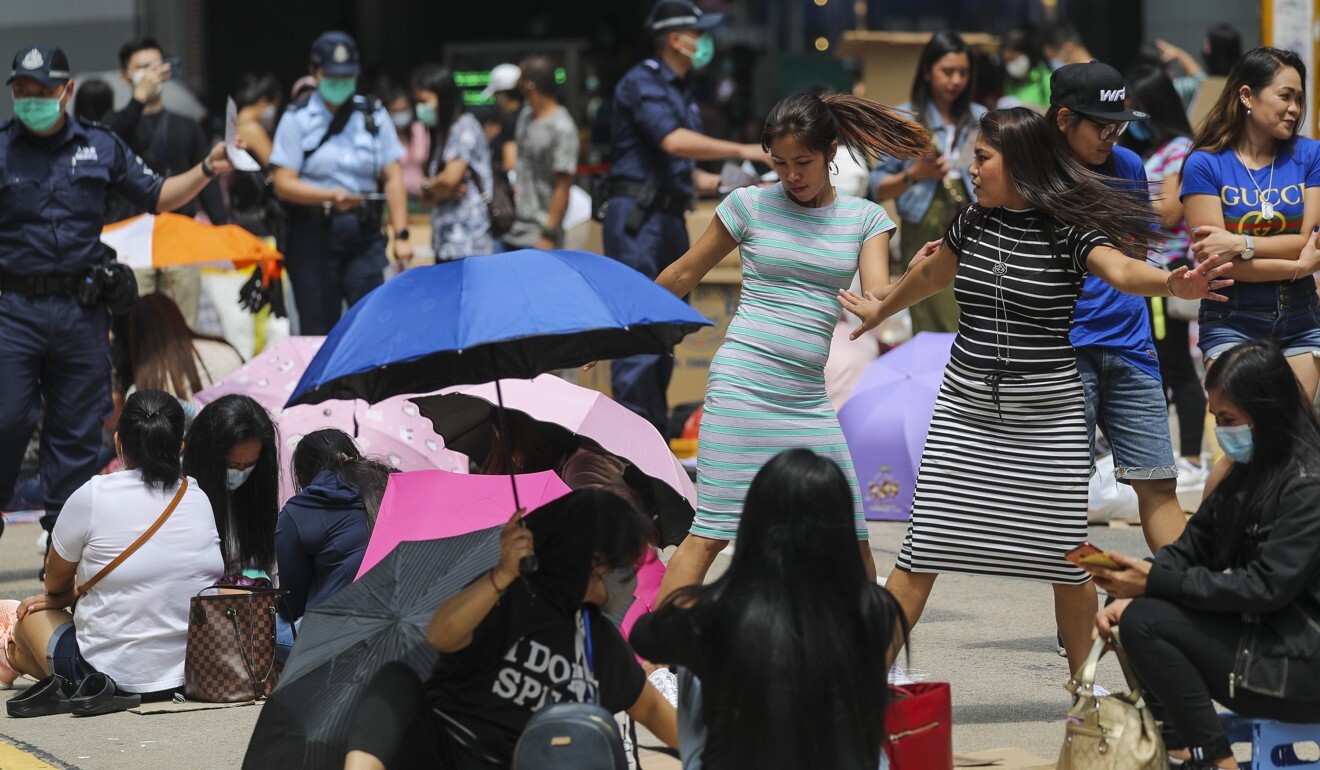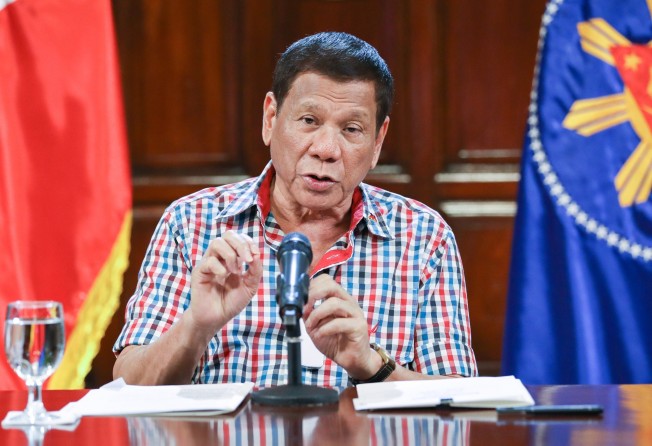
Overseas Filipino workers won’t have to pay health insurance premiums for now: Duterte
- Workers are petitioning for the payments, which comprise 3 per cent of their monthly salary, to be scrapped entirely amid the Covid-19 outbreak
- A Filipino domestic worker in Hong Kong earning the minimum wage would have to pay more than HK$1,660 annually

President Rodrigo Duterte on Monday suspended the mandatory premiums overseas Filipino workers (OFWs) were required to pay the Philippine Health Insurance Corporation (PhilHealth), as workers petitioned for the payments to be scrapped entirely amid the Covid-19 pandemic.
A law Duterte signed in February 2019 required OFWs to pay 3 per cent of their salary every month to PhilHealth instead of the previous flat fee of 2,400 pesos (US$47) yearly.
Implementation of the new fees was delayed, but PhilHealth last week issued a circular to start collecting them, and requiring proof of payments to the state insurer before a worker could be issued an overseas employment certificate allowing them to work abroad.
A petition on Change.org had collected more than 400,000 signatures before presidential spokesman Harry Roque announced that health secretary Francisco Duque III had suspended the premium payments on Duterte’s orders, and made them voluntary rather than mandatory.
A comment on the petition by Willie Vytngco, who is based in Doha, Qatar, said: “Our family was not included in any support from government and you want us to pay more? Enough.”
Daisy Mandap, a Hong Kong-based journalist and lawyer, said that before Duterte signed the Universal Health Care bill into law, the health premium for an OFW was 2,400 pesos (HK$366) annually, and was not mandatory except for those leaving the Philippines for the first time.

This meant, she said, that a foreign domestic worker in Hong Kong earning the minimum wage of HK$4,630 per month (US$597), or HK$55,560 a year, would have to pay HK$1,667 in premiums annually – around 4.5 times the original sum. OFWs who earned higher salaries could see even larger jumps in their premiums.
On top of this, under the new law, the 3 per cent premiums in 2020 would rise to 5 per cent by 2024. The new premiums would affect an estimated 2.3 million OFWs who, in 2019, contributed remittances worth US$33.5 billion to the Philippines, or 9.3 per cent of the GDP, according to the country’s central bank.
Many OFWs became aware of the law only after PhilHealth chief Ricardo Morales directed agencies and employers to deduct the premiums from their salaries. His circular was dated April 16 but was only made public last week.
Following this, the Philippine Overseas Employment Administration said departing OFWs had to show proof of payment before they were issued overseas employment certificates – a document required before they could board a plane for their jobs abroad.
Roque told This Week in Asia he was “the main author” of the law in the Lower House when he was a member of Congress, and that nothing in the law said an OFW would not be issued an overseas employment certificate if they did not pay the premiums.
“They just concocted this. That’s not in the law,” he said, without detailing which government officials had created the stipulation.
Roque said that under the old law, OFWs were “under a special category” in PhilHealth, but that demarcation was removed. He added that the Universal Health Care bill went through several versions in Congress, and insisted that it did not contain the schedule of rate hikes.
“In my version [of the bill] I abolished PhilHealth because of corruption. Lo and behold, instead of being abolished it was even strengthened. That’s why I’m angry,” Roque said.
However, PhilHealth spokeswoman Dr Shirley Domingo said the bill contained the increased rates and schedule of implementation.
A This Week in Asia examination of the versions separately approved by the House and the Senate showed that neither one included the schedule of increase. Since the bill signed into law by Duterte contained the schedule, it was likely that it was inserted at the last minute during a bicameral conference to reconcile both versions.
Journalist and lawyer Mandap noted that the law contained a schedule of mandatory premiums for all Filipino workers, not just OFWs – meaning that only Congress can make the premiums voluntary, not Duterte.
“What we are protesting against is the mandatory nature of this ‘contribution’,” she said. “Those who want to pay are free to do so.”
A PhilHealth membership entitles an OFW and their immediate family to deductions from their hospital and doctor’s fees in the Philippines. For instance, a Stage 3 breast cancer patient who runs up 34,000 pesos of medical costs would end up paying less than 14,000 pesos.
Meanwhile, the Philippines has halted all inbound passenger flights for a week to free up space in quarantine centres filled with thousands of migrant workers who have come home during the coronavirus pandemic.
Some 24,000 Filipinos working abroad have already returned – many after losing their jobs as the global economy slows – and are required to undergo a 14-day quarantine in government centres that have rapidly reached capacity.
Outbound flights will continue to operate, the government said.
Help us understand what you are interested in so that we can improve SCMP and provide a better experience for you. We would like to invite you to take this five-minute survey on how you engage with SCMP and the news.